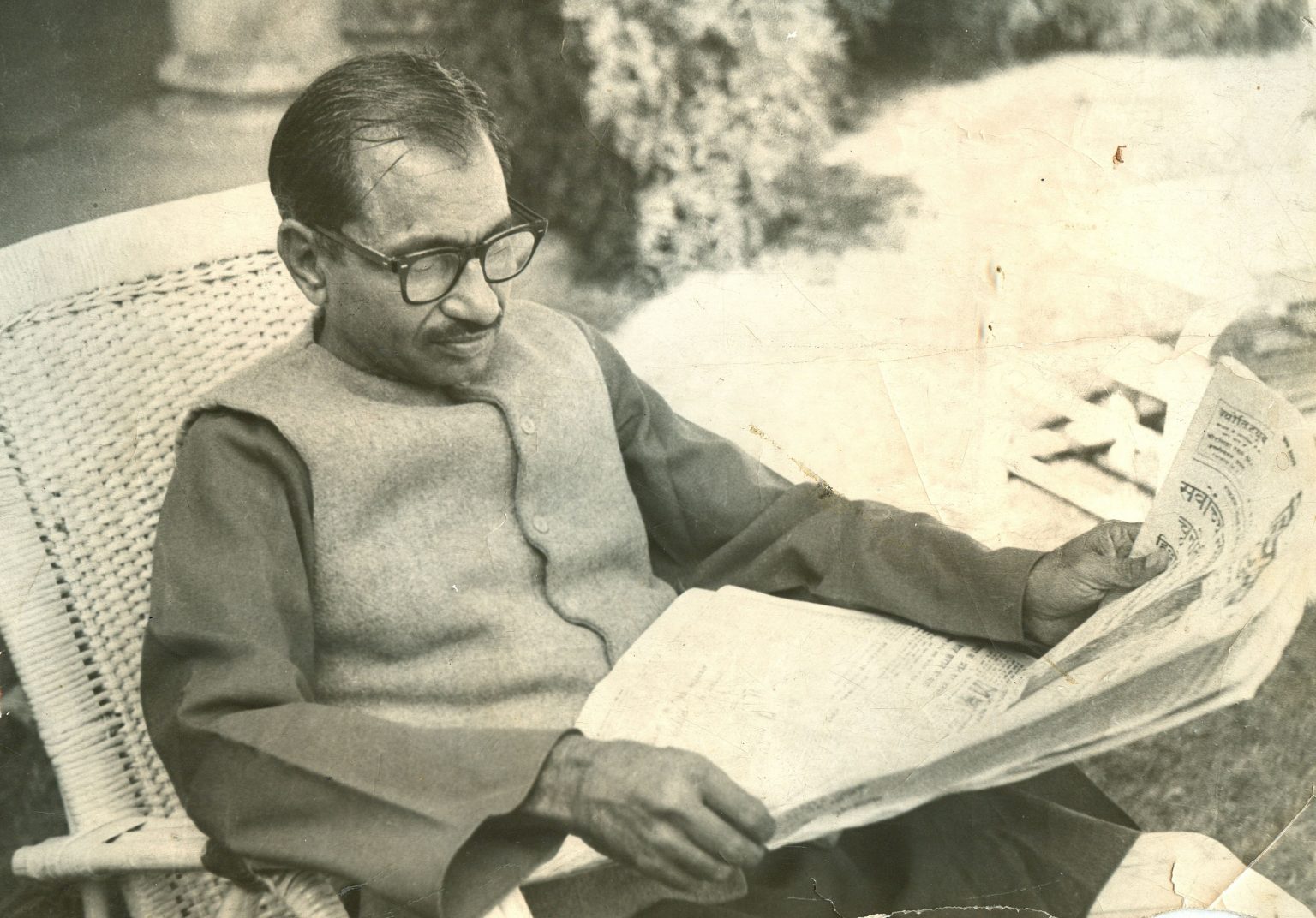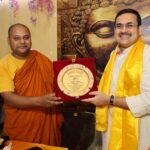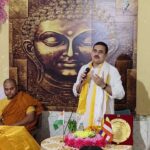DEENDAYAL UPADHYAYA: REFLECTIONS – 1
- By : Anirban Ganguly
- Category : Articles

Fulfilling Shivaji’s Dream, Jana Sangh’s Raison D’être, Secularism’s Contempt for Traditions…
Besides being a quintessential organisational leader, Pandit Deendayal Upadhyaya’s persona had another outstanding dimension to it, not only was he a profound political philosopher, he also displayed a very interesting capacity of envisaging, articulating and expressing that philosophy in the field of pragmatic politics as well.
An indefatigable political commentator and observer Deendayalji wrote prolifically, his impulse to impart political direction and inspiration drove him to constantly comment on our national evolution, and on the path that India was being driven to take, on the contemporary challenges to our national regeneration and especially on the future direction that she ought to take for her fullest self-expression. It is an interesting and elevating exercise to follow the evolution and flow of Deendayalji’s mind, his thoughts, his political positions and inspiring formulations, made at a time, when the Nehruvian behemoth was dominating, when the Bharatiya Jana Sangh, of which he became the front-ranking general secretary, was struggling – albeit determinedly – to gain a foothold in national politics, when the atmosphere, among the cadres of the party, due to electoral defeats and seemingly insurmountable challenges before them, was despondent.
One comes across a very apt description of the Nehruvian state: it had an “odious state apparatus”, a “prescriptive dominance of a personality-driven social agenda, its overwhelming primacy of executive authority, and its grim, resolute suppression of alternative ideological positions – all precariously balanced against a pedantic dedication to democratic procedure and collective policymaking.” (Tripurdaman Singh, Sixteen Stormy Days: the story of the first Amendment to the Constitution of India, 2020)
To be able to maintain a sustained, relentless, steady and unflagging effort in trying to create a counter political narrative to such a behemoth, to make effective an alternate political movement and platform against such a massive hegemony of the Nehruvian structure, demanded more that political zeal, it demanded a determined and fundamental belief in the ultimate triumph of the vision of politics that was being expressed and worked out in opposition to the Congress. Deendayalji radiated that fundamental faith. He was also quick to remind the workers and enthusiasts of the fledgling Jana Sangh, that the party was formed not merely to oppose the Congress, in fact, he never failed to reiterate that its first and foremost raison d’être was to espouse and put forth a different vision of India, a vision which was indigenous, rooted to and evolved from the Indian ethos. The “Jana Sangh”, he wrote in January 1952 around the time when the first general elections were being held, “does not exist merely to oppose the Congress. The task of making the country happy and prosperous is foremost in its view…The rise of the Jana Sangh has come about in order to dispel this environment of gloom and rekindle hope and energy in the country…” (Congress versus Jana Sangh, CWDU, 2) The Jana Sangh presents, he argued in his first address as the “Pradeshik Mahamantri (State general secretary) of Uttar Pradesh, “the fundamental principles of our nation’s way of life. The Jana Sangh believes in the principle of one nation, one people and one culture.” This was the basis on ‘which it strives to build and develop the nation.” (Leaders Never Upheld the Unity of the Country, CWDU, 2). Both these speeches of his are worth reading since they reflects the tenacity of his political thinking and makes a clear and defined enunciation of the goal, the objective of the new party.
A look at his writings and speeches, of over nearly three decades, from 1940s to his sudden death in 1968, offers an interesting perspective in the world of his political mind, besides being inspirational, they retain a capacity to infuse an ideological reiteration and orientation, in short, they inspire and root the reader.
A short, lucid and inspiring address of his, perhaps his last as Sah Prant Pracharak of RSS, before his joining the Jana Sangh, on the “Resolve to Fulfil Shivaji’s Dream” (Resolve to Fulfil Shivaji’s Dream, CWDU, 2) delivered on the anniversary of the coronation of one of the most iconic figures in Indian history, contains some very relevant points. Deendayalji spoke of the need for “indomitable will to succeed in one’s task. One can’t worry about what others say.” Much like Shivaji who displayed such a will, who did not care what others had to say about him. This confidence, Deendayalji pointed out, enabled Shivaji to establish an “empire of Dharma, which protected the pious and safeguarded the wealth of our country.” Shivaji ruled for the sake of two attributes, “Swadharma and Swarajya”. To fulfil his dream would be to re-establish Swarajya and Swadharma.
In this address, as early as 1951, Deendayalji cautions against adopting and promoting a skewed secularism, “the slogan of a secular State is being raised with great fanfare”, he told his young audience, “but secularism cannot mean the contempt for national traditions and the cultural life of a nation. A secularism that is based only on materialism can never match the nature and way of life of the people of our nation.”
The decades that followed proved Deendayalji prophetic. The Nehruvian establishment propped itself up on a consensus that would promote a secularism which was antithetical to and hostile towards our traditions and faith. It would actively seek to suppress and marginalise these, and would profess a disdain and contempt for them. In fact this warning of Deendayalji’s was, in effect, a warning against adapting pseudo-secularism as the underlying thought of the Indian state. That pseudo formulation of a false secularism, has now at least, begun to be challenged and exposed.
















